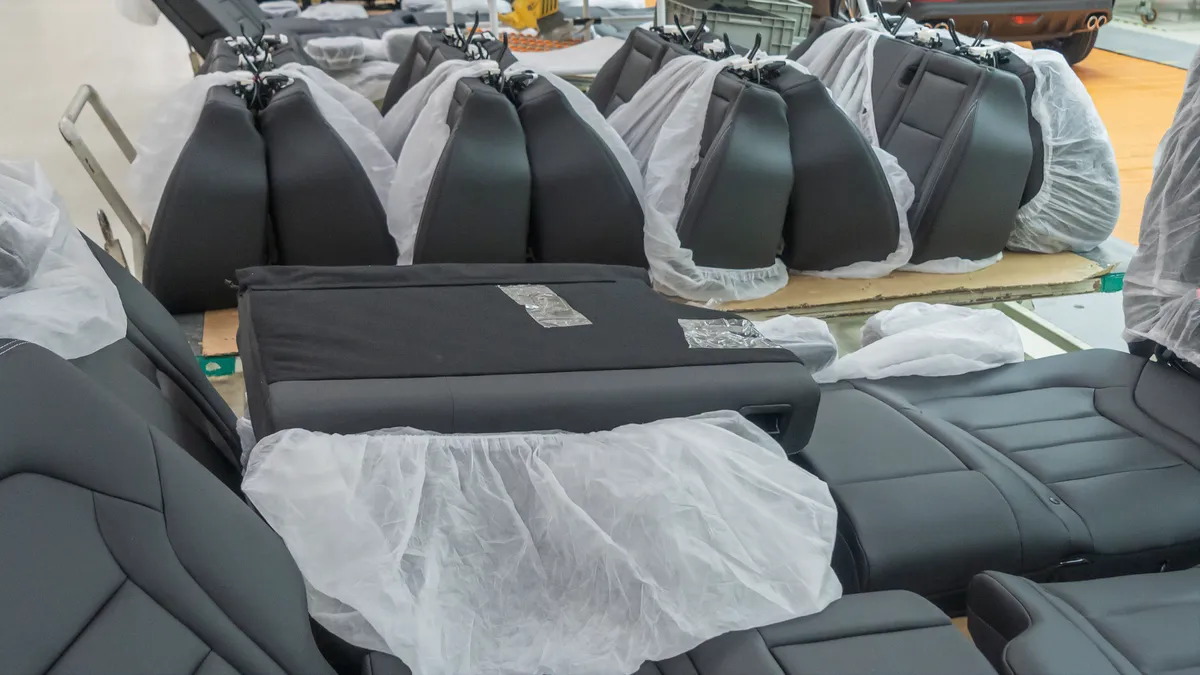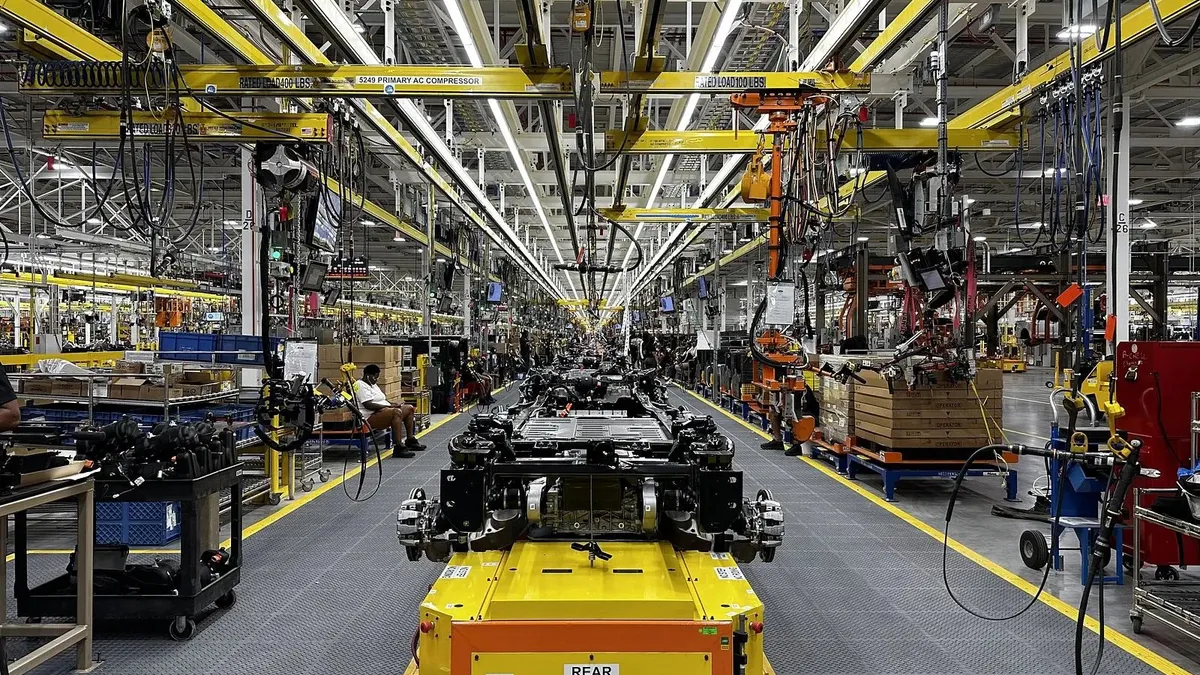Dive Brief:
- Nissan Motor Corp. plans to launch 30 new models, and grow its sales by 1 million units by the end of fiscal year 2026, according to a press release on Sunday.
- The mid-term business plan, dubbed “The Arc,” aims to help Nissan transition to electric vehicles. Sixteen of the 30 new models will be EVs and plug-in hybrids.
- The automaker plans to lower its EV costs by 30% and reach cost parity between internal-combustion-engine vehicles and EVs by 2030.
Dive Insight:
Nissan has fallen behind other major automakers in the EV transition as competition heats up, but its new approach promises to help the company catch up.
“The Arc plan shows our path to the future,” Nissan President and CEO Makoto Uchida said in a statement. “This plan will enable us to go further and faster in driving value and competitiveness. Faced with extreme market volatility, Nissan is taking decisive actions guided by the new plan to ensure sustainable growth and profitability.”
The automaker currently offers just two all-electric models — the Ariya and Leaf. EVs made up just 2.3% of Nissan’s U.S. sales last year, trailing every brand that sells EVs except Lexus, Subaru and Toyota, according to a Cox Automotive analysis. Nissan sold just 20,616 EVs in the U.S. in 2023, with Leaf sales falling 56.9%, according to a press release.
From FY 2024 through FY 2030, Nissan plans to launch a total of 34 electrified models worldwide. It expects electrified models to account for 40% of its vehicle sales globally by FY 2026 and to reach 60% by the end of the decade.
Going forward, Nissan plans to develop families of EVs to improve its competitiveness, with production starting in 2027. The approach involves sharing powertrains and other parts across different models, adopting modular manufacturing processes and improving battery cell chemistry.
The automaker said that after it develops the first EV in a family, subsequent vehicles based on the first vehicle would cost 50% less to develop. In addition, Nissan expects the approach to shorten the development lead time by four months and reduce the variation in trim parts by 70% for subsequent vehicles. The company also said modular production would allow the company to cut production time per EV by 20%.
In the near term, Nissan plans to refresh 60% of its internal-combustion-engine vehicles, including the introduction of 14 new models, by FY 2026 to boost sales and profits.
In the Americas, Nissan plans to grow sales by 330,000 units in FY 2026, which includes launching seven new models in the U.S. and Canada. Nissan also said it will refresh 78% of its U.S. model lineup and launch new electric and plug-in hybrids by then.
In addition, Nissan wants to form new strategic partnerships to improve and accelerate the rollout of new technology, including vehicle software and autonomous driving functions. The automaker will also invest $200 million to improve the customer experience in the U.S.
The automaker signed one partnership last week: a nonbinding agreement with Honda Motor Co. to study whether the companies should jointly develop EVs and automotive software. However, the company appears to have called off negotiations on an additional partnership with EV startup Fisker.















